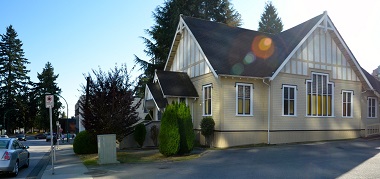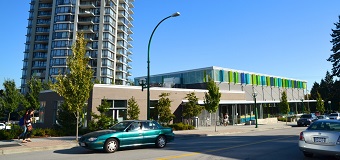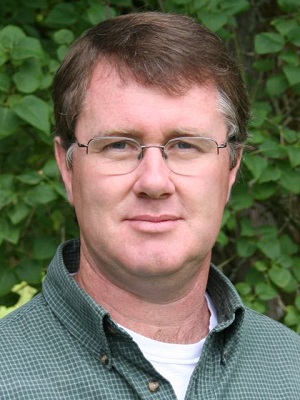As national director for Forge Canada and a seasoned missional leader, Cam Roxburgh knows that “within every movement there is a tendency to want to look for models to copy,” but that “copycatting” is not the answer. Nonetheless, he acknowledges that “We do need to hear stories.”
Thus, he opens the July 2016 issue of Forge Canada’s Missional Voice newsletter with a friendly reminder that each church’s situation is unique (‘Do What I Say, Not What I Do’) and then goes on to offer “a number of stories from different styles of church and different geographic locations, different theological backgrounds and differing models of leadership, to demonstrate that to become missional does not mean jumping to a box or category.”
Following is the story of Southside Church, which began in the Edmonds area of Burnaby and now has three other locations (Burnaby Mountain, Surrey, Albania). Go to Missional Voice for several other stories, including that of Grandview Calvary Baptist Church in Vancouver by pastor Tim Dickau.
Southside Community Church was launched in the summer of 1992 in a poor neighbourhood of Burnaby, as a core of us began to dream about what church could look like if we moved into a neighbourhood to try and make a difference.
Many of us had middle class backgrounds and so this was a new environment. It was not unusual to be approached by prostitutes as we went to our offices in the church. Many mornings we would find people sleeping on the steps of the church, or evidence of parties on the church property from the night before. The issue of transiency was very prominent.
We had inherited a building, but we adopted a neighbourhood. Or perhaps we might say we were adopted by a neighbourhood.
Establishing the DNA
We spent the first six months really just trying to live in that place. We participated in neighbourhood events, served the neighbourhood, got involved in community teams and councils, shopped there and began to get to know our neighbours. We looked for ways that we could make a difference and when people witnessed what was going on, they wanted to become a part of what we were doing.
There was a lot of energy, but it was hard not to get excited as we had front row seats to God transforming lives.
Being in a lower class urban setting to start was a huge influence on both the desire to see neighbourhood transformation and to care for the poor. All of our congregations and mission groups have this as a part of their DNA at present.
This neighbourhood emphasis and the care of the poor has been a huge influence in shaping who we are as a people. We continue to seek integral mission through both social justice and through proclamation.
I think we could agree with Alan Hirsch who says that for incarnational living we seek to use proclamation, presence, proximity, and to minister from a position of powerlessness.
Early on we began to throw neighbourhood parties on Labour Day. At first we called it the Big Pig Gig, later changing to A Taste of Edmonds. Through the years up to 4,000 people participated on the day. It was a huge factor in us enjoying the favour of the people of the neighbourhood. I think church retreats have been crucial for us as well. We have had 80 percent of our people go away for the weekend and celebrate what God has done in our midst over the past year.
Unfortunately I think there are some events on the negative side of the coin as well. Several of these sad times in our life together have brought deep pain, but we continue to believe that God can use all things for his glory.
Multi-congregational leadership
In today’s context, developing leaders who see themselves as pastors is crucial. Our Mission Group Leaders need to understand that they are the pastors of their groups of 10 – 12, and therefore carry the responsibility and the privilege of ministering to these people and to their neighbours.
They are to be the equippers for mission for their groups. Of course they are resourced by staff and other levels of leadership, but the foundational model of Southside has always been that we are trying to get away from the ‘professionals’ doing all of the ministry.
On the next level then, when our Mission Group Leaders are doing well and multiplying their group, they have the potential to grow into Congregational Leaders.
We have one Elders Team who lead the vision and oversee the spiritual development of the church. However, each congregation has a leadership team made up of the Mission Group Leaders who inform the Elders as to what is happening in their congregation. Each congregation has a number of Mission Groups that have leaders who pastor the people.
So although we are one church, with one Elders Team, we continually are trying to raise up Mission Group Leaders to lead the people. I suppose the model of the Israelites presented to Moses by his father-in-law Jethro has been a shaping model for us.
Beginnings of Forge Canada
 In light of this constant need for leadership training, we developed another level of training where we began to take next-generation leaders through a two-year process to equip them to lead congregations. The training was theologically based, but very practical in its nature.
In light of this constant need for leadership training, we developed another level of training where we began to take next-generation leaders through a two-year process to equip them to lead congregations. The training was theologically based, but very practical in its nature.
The leaders were deeply involved in the life of the church as a part of their training, and not just sent away to seminary for three years. This is really where Forge Canada got its start. We had a need for training missional congregational and mission group leaders.
Southside today
We are now 23 years old. The inner city of Burnaby where we started is now extremely diverse, including a trend towards becoming a middle class, commuter-based urban centre. It has also become a very multicultural place. Our gatherings look different and our efforts to serve the community are changing.
For years we have asked the question over and over and over again: “What are we doing that is inadvertently producing consumers and not missionaries?” We are trying to live in the power of the Spirit and not compromise on the biblical call to make disciples. We want to produce people who know their identity in Christ, desire to be obedient to him in all ways, and to follow him in mission.
There are times when we make mistakes and times that, even when we get it right, people walk away because they find the call too difficult. Lots have come and loved what we stand for, but left when they see that we are serious and hold each other accountable.
There are times when we are tempted to focus on growing numerically at the expense of what we feel would be compromise. But the words of Gordon Crosby (Church of the Saviour in Washington, DC) ring as loudly in my ears today as when he spoke them to me 11 years ago: ”Never compromise from the vision that God has given you.”
I want to make sure that we are not putting any roadblocks in the way, but that we are completely faithful to what God has called us to. God promised that we will find that difficult.



